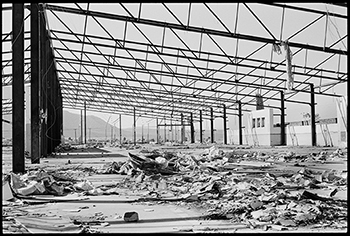Latest News Archive
Please select Category, Year, and then Month to display items
05 April 2021
|
Story Dr Nitha Ramnath
|
Photo Supplied
 Jamba Isaac Ulengo.
Jamba Isaac Ulengo.
François van Schalkwyk and Keenan Carelse, UFS alumni leading the university’s United Kingdom Alumni Chapter, have put their voices together to produce and direct the podcast series. Intended to reconnect alumni with the university
and their university experience, the podcasts will be featured on the first Monday of every month, ending in November 2021. Our featured alumni share and reflect on their experiences at the UFS, how it has shaped their lives, and relate
why their ongoing association with the UFS is still relevant and important. The podcasts are authentic conversations – they provide an opportunity for the university to understand and learn about the experiences of its alumni and to celebrate
the diversity and touchpoints that unite them.
Our podcast guest
Born in the North West town of Vryburg, Ulengo first played provincial rugby at the U16 Grant Khomo Week in 2005. While attending Jim Fouché High School in Bloemfontein, Ulengo was chosen to represent the Free State at various youth levels. As
an up-and-coming player, Ulengo made his break via the FNB Varsity Cup Competition where he starred for the Shimlas, scoring 11 tries in 18 appearances over the three seasons between 2010 and 2012. A short stint with the Free State Vodacom Cup side
saw him make his debut for the Blitzboks (Glasgow 2012), followed by a tournament at the London Sevens in 2014. Ulengo has been a prominent member of the South African Sevens since making his debut for the team in the Scotland leg of the 2011-2012
IRB Sevens World Series. He played in the two final tournaments of that season and then signed a two-year contract with the South African Rugby Union to represent the team in the 2012-2013 and 2013-2014 series. While he only competed at four events
in his first full season, he was involved in seven of the tournaments in his second season.
Ulengo made his return to the sport by signing a contract to play Currie Cup rugby for the Pretoria-based Blue Bulls in 2014 and for their Super Rugby franchise, the Bulls, from the 2015 Super Rugby season.
Award-winning photographer exhibits ravages of war, 25 May 2016 until 17 June 2016
2016-06-02

The ruins of the Dimbaza Border Industrial Park built
in the 1970s as a source of cheap labour for industrialists
and ostensible employment for Ciskei Homeland citizens.
This industrial zone collapsed after 1994.
Photo: Images courtesy of the Galerie Seippel.
All images © Cedric Nunn
Cedric Nunn’s latest photographic exhibition, Unsettled: One Hundred Years War of Resistance by Xhosa Against Boer and British, opened on 25 May 2016 at the Johannes Stegmann Art Gallery of University of the Free State, and will run until 17 June 2016. Since 2014, the exhibition has travelled through South Africa and the USA as well as Germany.
The photographer, documentary film-maker, and artist’s photographic journey was launched in the early 1980s in Durban. In 2011, he won the first FNB Joburg Art Fair Award.
Narratives of the victors and the vanquished
Unsettled deals with the nine wars that Xhosa people were subjected to between 1779 and 1879 in their fight against Afrikaner and British colonial settler forces. Nunn’s art seeks to instigate social change, and highlight lesser-seen aspects of society.
The work emanated from his awareness of a notable gap in the telling of this piece of South African history, as well as the fact that, to date, little has been done to memorialise these acts of colonial aggression and Xhosa resistance. He decided to document the land where these struggles took place.
“Through revisiting this painful past in the contemporary scenes of today, this work attempts to place the present in its factual context of dispossession and conquest,” said Nunn.
Unsettled forms the first component of what will be a trilogy. The next component will address the legacy of colonial dispossession through “bringing ‘the first inhabitants’ back into the picture by giving a select number of self-describing Khoi, Griqua, and San or Bushmen a contemporary face and presence”. The final component will look at slavery.